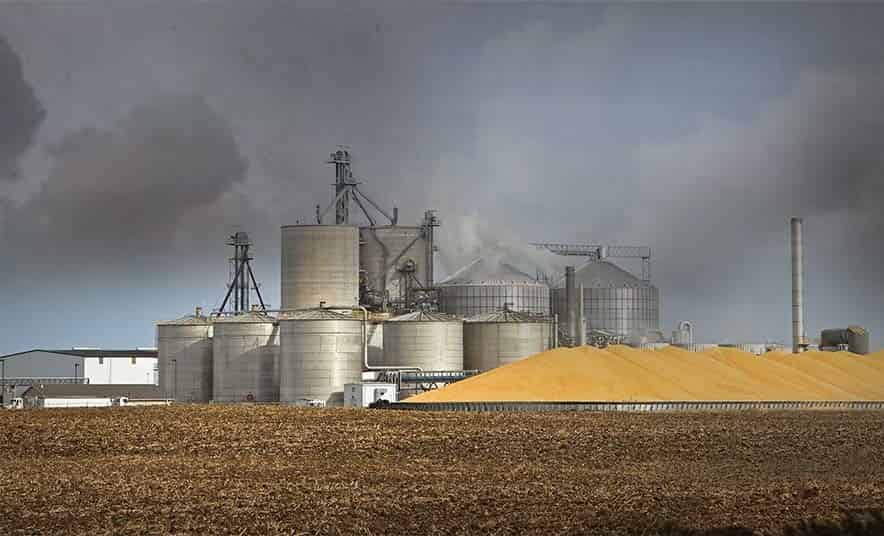Welcome To ChemAnalyst

Indonesia: Indonesia emerged as a global leader in biofuel production in 2021, with the country's output of 137,000 barrels per day of biodiesel surpassing that of the United States and Germany. The Association of Southeast Asian Nations (ASEAN) played a significant role in meeting the world's biofuel supply needs. Moreover, biofuel also served as an essential energy source for other major producers such as Malaysia, the Philippines, and Thailand to support their domestic energy demand and promote economic growth.
The potential of biofuel to reduce Carbon emissions in energy systems has been acknowledged by Asean member nations. So far, five countries have introduced blending mandates to increase the use of biofuels. Indonesia aims to achieve B40 (40% Palm-based biodiesel content) by 2030 and E50 (50% Ethanol content) by 2050. Malaysia has implemented B20 and E10, while Thailand has set targets to achieve B20 and E85, with a plan to attain a 20-25% biofuel share in overall energy demand by 2037. The Philippines has targeted B10 by 2040 and E20 by 2040, whereas Vietnam plans to implement B10 and E10 to achieve 25% fuel demand share in the transportation sector by 2050.
Despite the increasing focus on electric vehicle (EV) advancement, the benefits of transitioning to biofuels instead of promoting EVs are being questioned. This is due to various factors such as cost-effectiveness, sustainability, and preparedness of the supply chain. However, adopting both biofuels and EVs may be the most feasible approach for Asean in mitigating emissions rapidly while keeping expenses at a minimum.
Asean's rich reserves of biomass offer a promising opportunity for the development of a consistent supply of biofuel feedstock. The blending of biofuels with conventional transportation fuels like gasoline and Diesel can serve as a viable alternative. Moreover, Asean boasts substantial Nickel reserves, which, coupled with advancements in battery manufacturing, can provide the impetus needed to accelerate EV production and achieve price parity for electric vehicles.
Asean needs to ramp up its feedstock production to meet the rising demand for biofuels. The biofuel market is expected to grow at a faster pace of 4.7% per annum until 2050 as compared to oil at 4.4%. This highlights the urgent need to reduce dependence on fossil fuel-powered vehicles and promote sustainable energy alternatives.
Asean's quest for solutions to feedstock shortage demands more than just scaling up the production capacity of traditional agricultural commodities. The region must contemplate the expansion of its feedstock portfolio beyond biodiesel-oriented resources to include Ethanol, as most passenger cars run on gasoline rather than Diesel, which is predominantly used by heavy-duty vehicles. Shockingly, Indonesia's Ethanol production in 2022 amounted to a paltry 40 thousand litres, far below the 10.1 billion litres of Biodiesel produced that same year. Meanwhile, Malaysia is yet to launch an Ethanol programme.
Biofuel prices have surged due to the competitive use of feedstock for food and energy. This trend has been observed globally, as biodiesel prices increased by 20 to 30 per cent in 2022. In Brazil, bioethanol prices rose by 20 per cent, while in the United States, they went up by 30 per cent. The primary biodiesel feedstock in Indonesia and Malaysia.
The biofuel industry in Asean is heavily reliant on crops, with coconut oil being the main source of Biodiesel production in the Philippines and palm oil serving as the primary feedstock for Indonesia, Malaysia, and Thailand. Sugarcane or Sugar beets derivative, molasses, is used for Ethanol production in the Philippines and Thailand. Waste products like used cooking oil and animal fats have been utilized by Singapore to power various vessels, including Formula One race cars, but this remains a small-scale operation. While Cambodia has made efforts toward biofuel development with 1,000 hectares of Jatropha plantation in 2018, there are no updates on the progress of production.
Advanced biofuels, such as hydrotreated vegetable oil (HVO) and biomass-to-liquid (BtL)-diesel, have the potential to strengthen Asean's biofuel industry, in addition to non-food feedstocks. These liquid fuels are produced from non-food-based sources and offer a significant reduction in greenhouse gas emissions compared to fossil fuels - at least 50% throughout their lifecycle. Research and development on advanced biofuels have been initiated by only a few Asean countries, namely Indonesia, Malaysia, the Philippines, and Thailand.
In July 2022, Indonesia conducted an experiment using a blend of B40, which consists of 30 percent Fatty Acid Methyl Ester (FAME) and 10 percent Refined, Bleached, and Deodorised Palm Oil (RBDPO), on 12 popular passenger cars and commercial vehicles. The test covered over 50,000 km for commercial vehicles and 40,000 km for passenger cars. Meanwhile, Thailand has set a target to produce 194 million litres of pyrolysis oil (bio-oil) annually by 2037, as part of its Alternative Energy Development Plan (AEDP) 2018. Pyrolysis oil can be used as fuel for combustion engine vehicles when mixed with Ethanol.
Taking cues from the United States, the adoption of fiscal incentives could potentially hasten the transition from conventional feedstock options to advanced ones, ultimately leading to substantial benefits for the surrounding community. The Biomass Crop Assistance Program (BCAP), for instance, provides financial aid to landowners and businesses involved in establishing, cultivating, and distributing biomass plantations targeted towards advanced biofuel production. Producers of eligible feedstock can benefit from a reimbursement of 50% for the expenses incurred in establishing a biomass feedstock crop. They may also receive yearly payments for herbaceous feedstocks for a maximum of 5 years and woody feedstocks for up to 15 years.
With rich agriculture resources, Asean member countries are turning to biofuels to achieve their net-zero goals. However, the challenge of meeting market demands due to feedstock shortages requires careful policy planning and supply chain strategies. Regional cooperation in planning could speed up progress towards sustainability and cost-effectiveness.
We use cookies to deliver the best possible experience on our website. To learn more, visit our Privacy Policy. By continuing to use this site or by closing this box, you consent to our use of cookies. More info.
